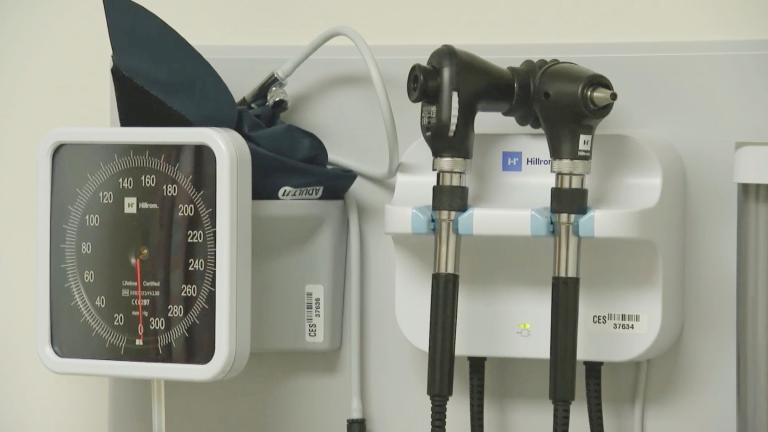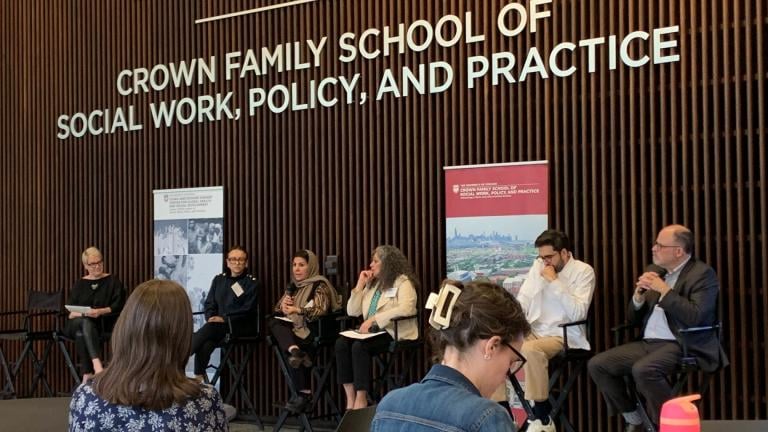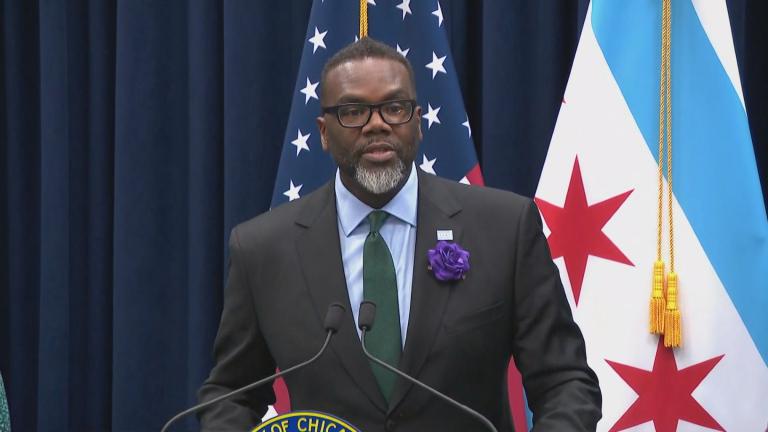Mayor Brandon Johnson on Wednesday defended his handling of the humanitarian crisis engulfing Chicago, telling reporters that his administration has met its obligations to care for the men, women and children sent to Chicago from the southern border — but that state officials have not made good on their promises to help.
“Now, I know folks may have questions about my style, but don’t question my leadership,” Johnson told reporters after Wednesday’s City Council meeting, his first public appearance since Gov. J.B. Pritzker told reporters Monday that he was “deeply concerned” Chicago officials had no plans to open new shelters.
Johnson said he would not say he is at odds with Pritzker, but acknowledged both were trying to cope with an unprecedented humanitarian crisis.
There were approximately 14,200 migrants in 28 city shelters on Wednesday, with another 200 people waiting at O’Hare Airport and on warming buses for beds to open up, according to city data. Nearly 35,000 migrants, who are all in the country legally after requesting asylum, have arrived in Chicago since August 2022.
More than 2,000 migrants are set to be evicted from city shelters by Feb. 2, after Johnson twice put off enforcing the 60-day limit on shelter stays during a period of extreme weather. Pressed by reporters, Johnson gave no indication he would grant the migrants another reprieve, but acknowledged it was an “evolving crisis.”
Instead, Johnson said state officials have not worked fast enough to help migrants move out of Chicago’s shelters into permanent homes, even as he praised the state for resettling 10,000 families since the crisis began.
“That process has not moved as quickly” as Chicago officials would like, Johnson said, or kept pace with the number of migrants making their way to Chicago, most on buses paid for by Texas Gov. Greg Abbott, a Republican, in an effort to damage President Joe Biden’s chances for reelection and divide Democratic voters.
In mid-November, Pritzker pledged to use $65 million to open a 200-bed shelter in a vacant CVS drugstore in Little Village and to house another 2,000 migrants in a massive, winterized base camp. Plans to build that structure in Brighton Park were scuttled by state officials, citing environmental concerns.
“The state committed to 2,200 beds, and we could really use those beds right now,” Johnson said.
By the end of February, city officials are set to evict 6,239 migrants from city shelters, according to city data.
Johnson acknowledged Wednesday that the group of people set to be evicted likely includes 1,700 children, who could have to change schools in the middle of the academic year.
“There are no easy answers to any of this,” Johnson said.
Several times, Johnson said state officials could open new shelters outside of Chicago at any time and noted that in the early months of the crisis, the state paid for thousands of migrants to stay in hotels across the city and suburbs.
“The state does not have to build a shelter in Chicago,” Johnson said. “The city cannot do it alone.”
Johnson acknowledged that state officials have offered cities and towns outside of Chicago nearly $50 million to help care for the migrants, but have received few responses. Johnson’s efforts to convene meetings with leaders of other Illinois’ towns have also failed to produce responses.
Contact Heather Cherone: @HeatherCherone | (773) 569-1863 | [email protected]








